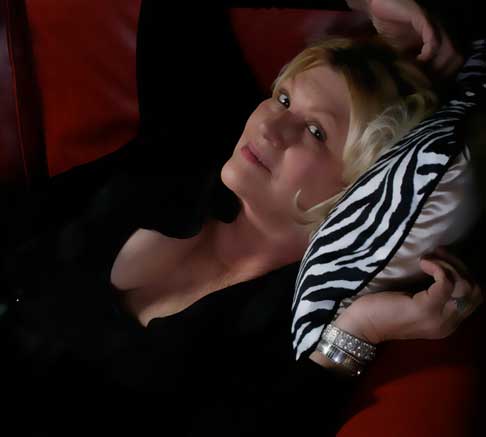Ever Beautiful
by Dan Forte
Beautiful
Bonnie Bramlett
Rockin' CamelWith over-the-top, "American Idol" histrionics not only passing for soul but becoming mainstream in all genres, it's nice to be reminded what the real deal is. Although she came to prominence belting mini tent revivals like "Only You Know and I Know" in the late '60s, as the fairer half of Delaney & Bonnie (the opening act that Eric Clapton defected from Blind Faith to join), Ms. Bramlett knows when and how to cool things down. Like any great soul singer, from Sam Cooke to Aretha, she knows when to go for the gusto and also when to rein things in.
As on 2006's Roots, Blues & Jazz (where she deftly interpreted a broad definition of standards, from "I'm Confessin'" to "No Particular Place to Go"), she demonstrates the lost art of dynamics on Beautiful. The album reunites her with Johnny Sandlin, who produced two of her mid-'70s Capricorn LPs, as well as several players from her past, including Muscle Shoals session greats David Hood (bass) and Spooner Oldham and Clayton Ivey (keyboards). Also on hand are Kelvin Holly and Scott Boyer (whose collective credits include Little Richard, the Amazing Rhythm Aces, Cowboy, the Allman Brothers, Johnny Rivers, and Bettye LaVette) on acoustic and electric guitars, and James Pennebaker on steel. And besides contributing sax and keyboards, Randall Bramblett (whose multi-instrumental talents were tapped for Traffic's 1994 reunion) wrote two songs, including the beautiful "Witness For Love," on which he duets with Bonnie.
As on Roots, Bramlett covers material by others, from Billy Joe Shaver's "I Do Believe" to Dan Penn's "He'll Take Care of You." "Strongest Weakness," a gritty rocker penned by Gary Nicholson and Bonnie's daughter, Bekka, showcases mother and daughter's ballsy vocals, while Steve Conn's poignant title tune is appropriately restrained and intimate.
Bramlett's funky, simmering reading of Stephen Stills' "For What It's Worth" is the most obvious "still relevant" protest song, but the sentiment contained in Gary Cotten's melodic "Some Of My Best Friends" is a stronger statement—addressing hypocrisy and everyday prejudices with lines like "Some of my best friends are black/At least that's what I say/When I talk behind their back."
Forty years ago, there were few females singers who possessed an instrument as powerful and supple as Bonnie Bramlett's; today, there are fewer still.
THE BLUEGRASS SPECIAL
Founder/Publisher/Editor: David McGee
Contributing Editors: Billy Altman, Derk Richardson
Logo Design: John Mendelsohn (www.johnmendelsohn.com)
Website Design: Kieran McGee (www.kieranmcgee.com)
Staff Photographers: Audrey Harrod (Louisville, KY; www.flickr.com/audreyharrod), Alicia Zappier (New York)
E-mail: thebluegrassspecial@gmail.com
Mailing Address: David McGee, 201 W. 85 St.—5B, New York, NY 10024
Founder/Publisher/Editor: David McGee
Contributing Editors: Billy Altman, Derk Richardson
Logo Design: John Mendelsohn (www.johnmendelsohn.com)
Website Design: Kieran McGee (www.kieranmcgee.com)
Staff Photographers: Audrey Harrod (Louisville, KY; www.flickr.com/audreyharrod), Alicia Zappier (New York)
E-mail: thebluegrassspecial@gmail.com
Mailing Address: David McGee, 201 W. 85 St.—5B, New York, NY 10024


